Intercultural Crosstalk
About Work and Holidays -Work- From a Indonesian, Chinese and Peru Perspective
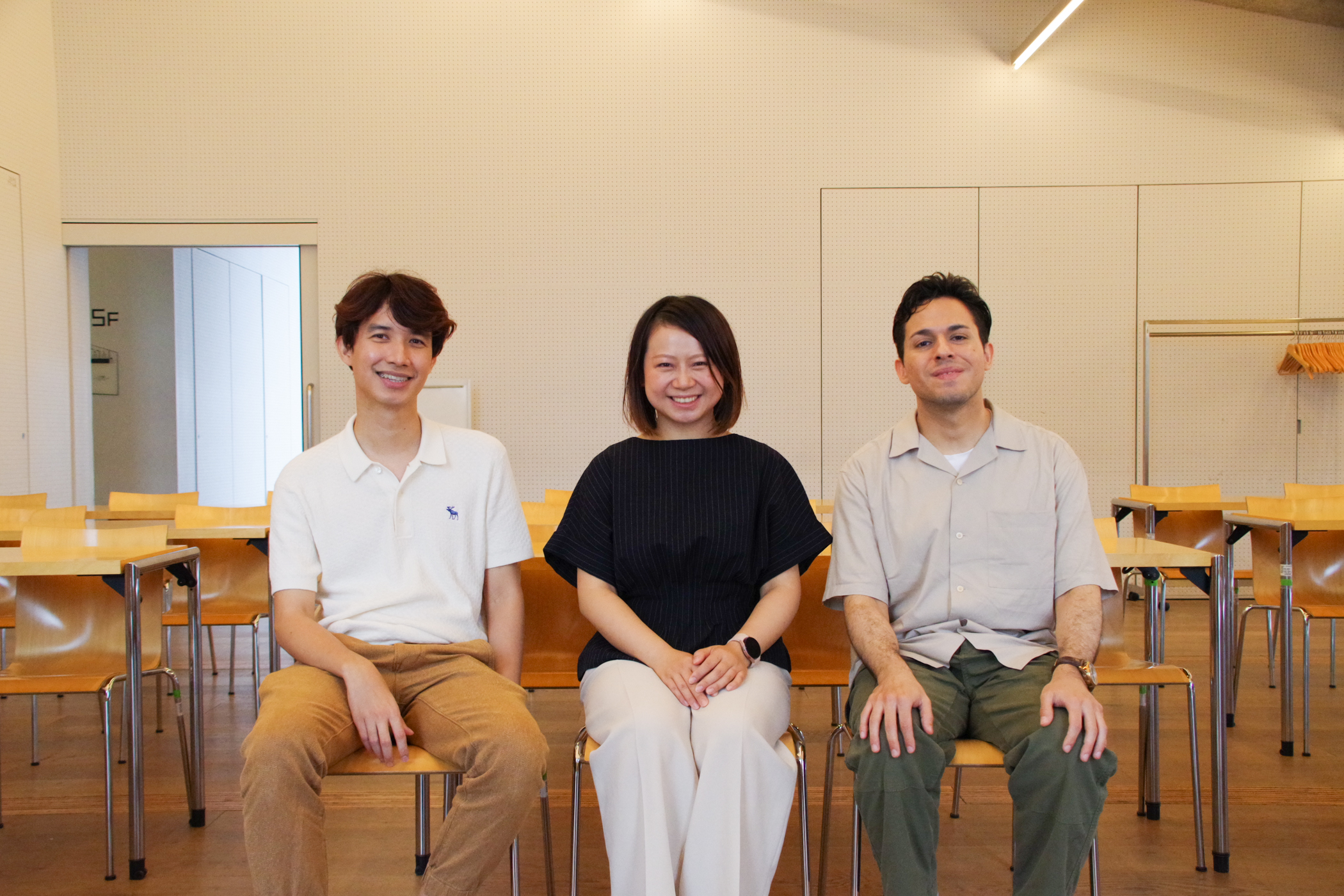
Profiles
Rizky (from Indonesia)
- Years of residence in Japan
- 10 years
- Native language
- Indonesian
- Favorite Japanese words
- Hibiki (sound, echo or reverberation)
- Favorite places in Tokyo
- Hamarikyu, Meiji Shrine
- Favorite food
- Sushi, Namafu (steamed wheat gluten combined with rice flour)
- Working in own country
- Architect assistant
- Working in Japan
- Designer (UI/UX, mobile app & web developer, graphic design)
Tina (From China)
- Years of residence in Japan
- 15 years
- Native language
- Chinese
- Favorite Japanese words
- Kusshon kotoba ("cushion words" meaning words used to soften awkward topics or to soften a conversation, such as the examples below) "Osore irimasuga"(I'm terribly sorry, but…), "Sen'etsunagara"(I do not mean to be rude, but..), "Ainiku" (Regretfully…), "Gotabō no tokoro, otesū wo okakesimasuga" (I'm sorry to bother you when you are so busy) , "Kokorogurushī desuga" (it hurts my heart but…I'm terribly sorry but…), "Sashitsukae nakereba" (If you don't mind me asking…)
- Favorite places in Tokyo
- Sumida city, Daikanyama to Nakameguro
- Favorite food
- Spicy food
- Working in own country
- N/A
- Working in Japan
- Sales in trading company
Diego (from Peru)
- Years of residence in Japan
- 14 years
- Native language
- Spanish
- Favorite Japanese words
- Ishin Denshin (mutually understand something without words, empathy, tacit understanding)
- Favorite places in Tokyo
- Shibuya
- Favorite food
- Basashi(raw horse meat dish)
- Working in own country
- N/A
- Working in Japan
- Company employee (customer service and sales)
1st Round: About Work
This is a three-part series about work and holidays. We discussed "work" this month. With more and more foreigners living in Japan and working for Japanese companies, what do they feel? The three participants talked about how they came to work in Japan, how they found their jobs, and the difficulties and rewards of working in Japanese society.
What Brought You to Japan and How Did You Start Your Current Job?
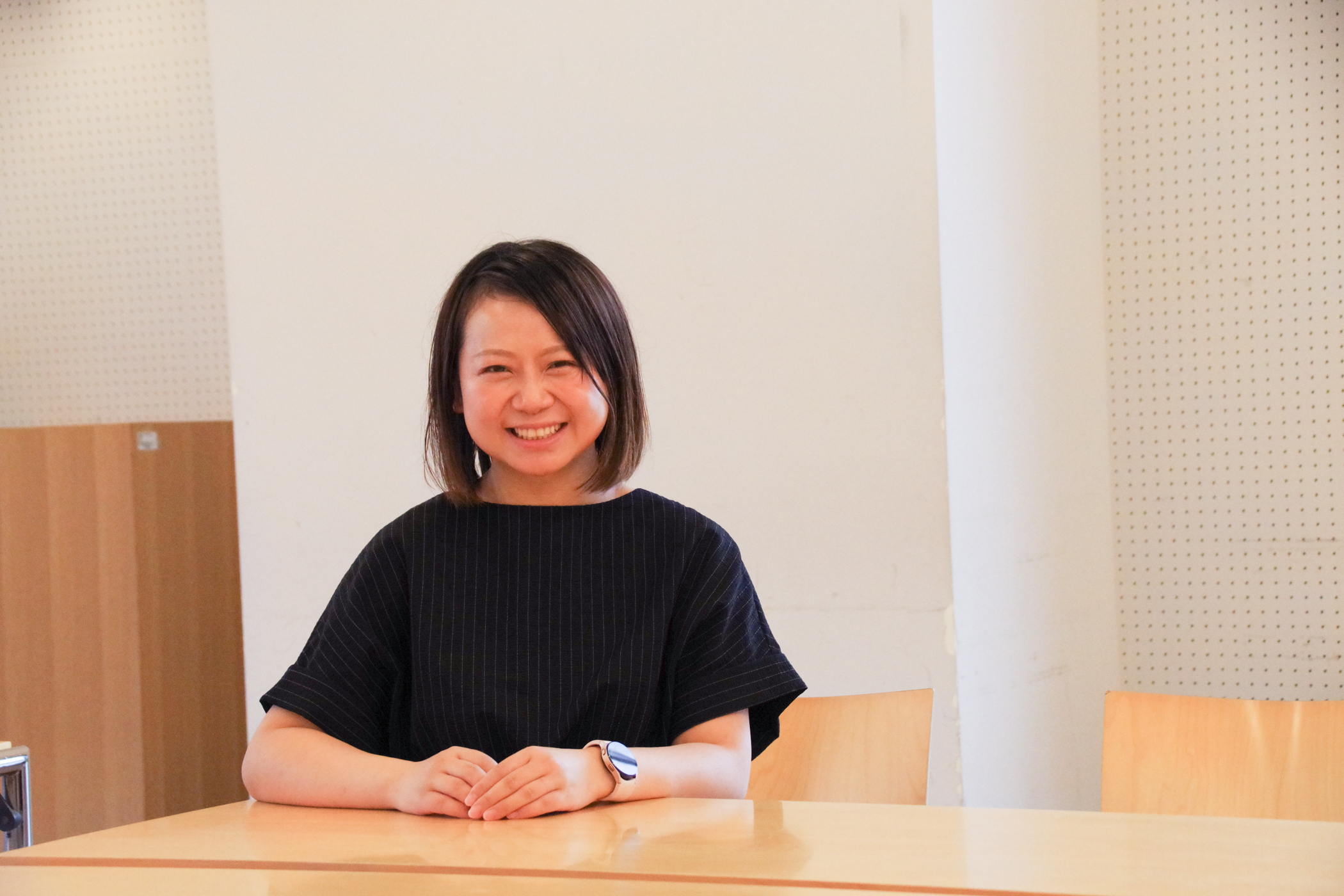
I didn't really know what I wanted to specialize in at university. I thought it would be easier to find a job if I studied a foreign language, so I joined the Japanese language faculty. That was my first contact with Japan. When I was in my third year in university, I had the opportunity to do an exchange program, and after living in Japan for a year, I felt that the culture and way of thinking seemed to be a good fit for me. I wanted to stay in Japan a little longer, so I came back to Japan to enter a Japanese graduate school and started working directly, and since then I have lived here for 15 years.
When I was a university student, my father's company was having difficulties, so I had to drop out of school and then came to Japan. I came to Japan not knowing Japanese, and I worked part-time while studying Japanese on my own. When I returned to Peru, my grandparents told me that I had worked hard. I felt that if I worked hard, I could succeed, and I was glad to have come to Japan.
My home state of Michigan is located in the northern part of the United States, and it has four distinct seasons. The latitude is about the same as Hokkaido, but winters are much colder. In winter, I wear about four layers and a ski jacket. One pair of socks is not enough. Summer is totally different, with temperatures ranging from 23 to 25 degrees Celsius, which is pleasant.
Ever since I was in high school, I felt that I did not want to stay in Indonesia all the time, considering that the world is a large place. I wanted to go abroad and work abroad, so I went to Malaysia, a neighboring country, for university. After graduation, I returned to Indonesia and worked as an architectural assistant while learning German, hoping to go to Germany next. There was an opportunity to get a scholarship for graduate school in Japan, so I gave it a try and was accepted, so I came to Japan. After graduation, I thought I would just work until my Japanese language skills improved, but before I knew it, I had been in Japan for 10 years.
When I was a graduate student, I was job hunting in Japan. At the time, I had not done much self-reflection, and although I applied for a variety of jobs, I decided to start by trying to find a job at a trading company. One of the reason was that I thought it would be easy to change jobs in that field. I am still working as a sales employee at a trading company that finally offered me a job. I have gradually come to realize that I am the type of person who wants to challenge myself in many different ways. As a result, I think that a place like a trading company, where there are many industries and types of work, is a good fit for me. Even now, I am working with a variety of people in diverse fields.
I initially did many different types of jobs because I wanted to learn skills that I was not able to do. When I couldn't speak Japanese very well, I was mainly working as a manual laborer and driver, but now that I can speak Japanese, I have been working in customer service. For me, it is very important not only to work but also to build good relationships with people. My current workplace is a good place to work.
I first worked at an architectural firm after graduating from graduate school because I had studied architecture as a student. Later, from the perspective of "design" in the wide sense of the word, I moved on to become a designer of UI/UX, apps, etc.
About Job Hunting in Your Country
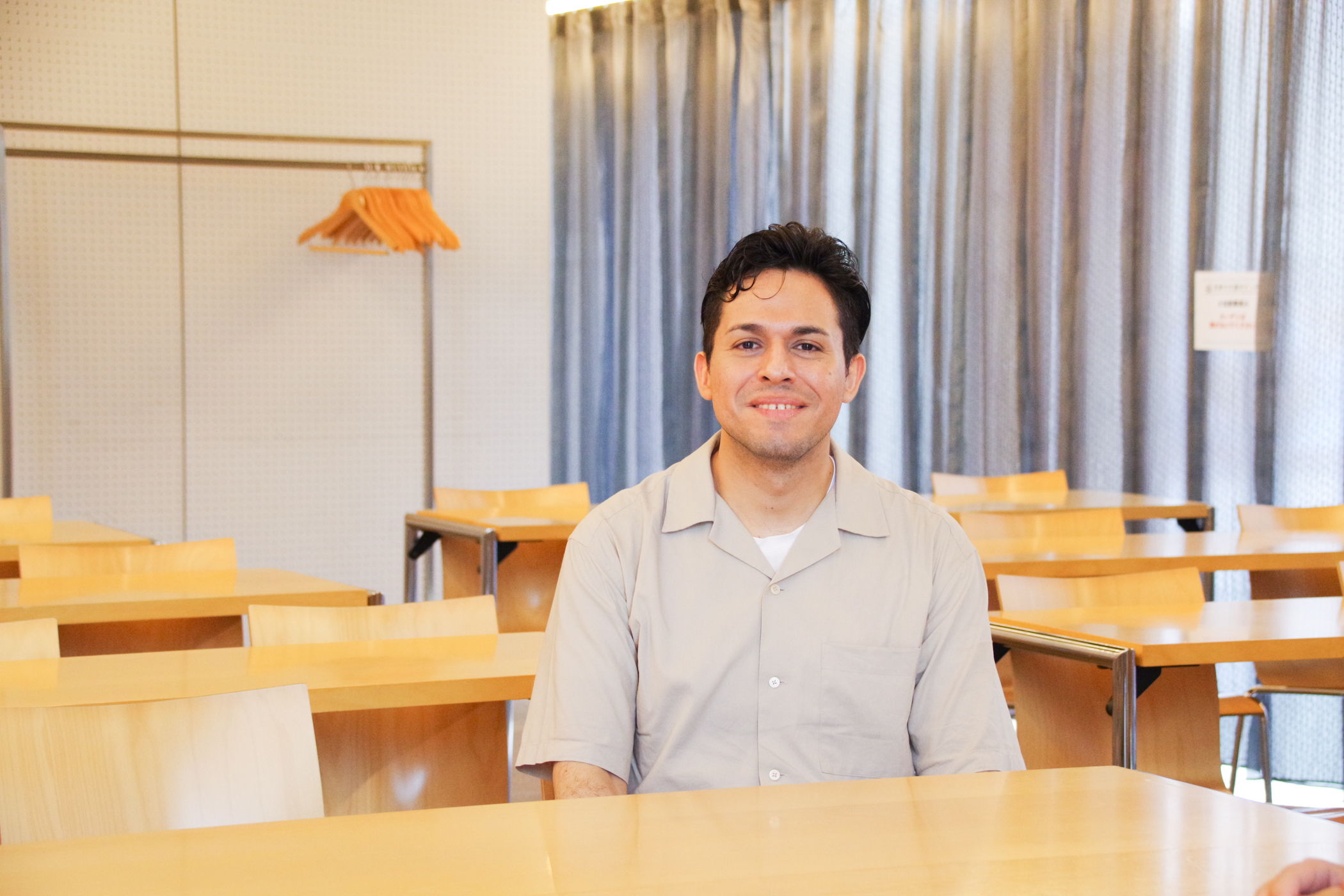
In China, the new school year starts in September and graduation is in June, so I have heard that job hunting begins in September of the fourth year of university. They do not start from the third year of university like in Japan.
Basically, in Indonesia, you cannot apply for a job until after you graduate from university. There is no such thing as a job fair. There are some lazy people who graduate from university, but they still don't have a job, and are told by their parents to find a job as soon as possible, or there are lazy people who don't want to work yet, so they leave one credit and don't graduate. is either the case of parents telling you to find a job as soon as possible, saying you still don't have a job after graduating from university, or there are lazy people who don't want to work yet, so they leave one credit and don't graduate. There may be some internships, but not that many .
In Peru, the new semester starts in April and university is for 5 years. Job hunting is during the third or fourth year of university, and internships are available, but the pay is very low and there is a lot of menial work. Sometimes you can get a job if you can build a good relationship. Some people also get jobs through family networks or friends. You need more connections than school grades to get into top companies such as foreign companies.
I was job-hunting in Japan, and although it says "no dress code" at company information sessions in Japan, this is not the case. It is still a mystery to me. It would be rude to dress too strangely, but I feel that there is a tendency in society to limit the way people dress. I think that if a company wants to get to know a person, it would be better not to have such a tendency.
When I see students in suits on the streets, I think, "It's that time of year again" (Rizky says laughing). When I went shopping for a suit with a Japanese friend before I started job hunting, I tried to choose a navy one, but he told me, "You shouldn't choose a navy one, you should choose a black one". But I still chose navy because I thought I wouldn't be able to use the black one much after finding a job.
A friend of mine told me that in China, people dress more formally than usual for job hunting. But I don't think there is any country in the world that is more formal than Japan. Although people from other countries consider themselves formal, too.
Peru is no different, and we dress more formally than usual. Many people dress more in line with Westerners, perhaps due to the influence of TV dramas and such.
Indonesia also does not have a set outfit, but there is at least a dress code. It is a hot country, so you don't have to wear a suit, but you can wear a button-down shirt. It is better to dress nicely.
Changing Jobs and Starting a Business
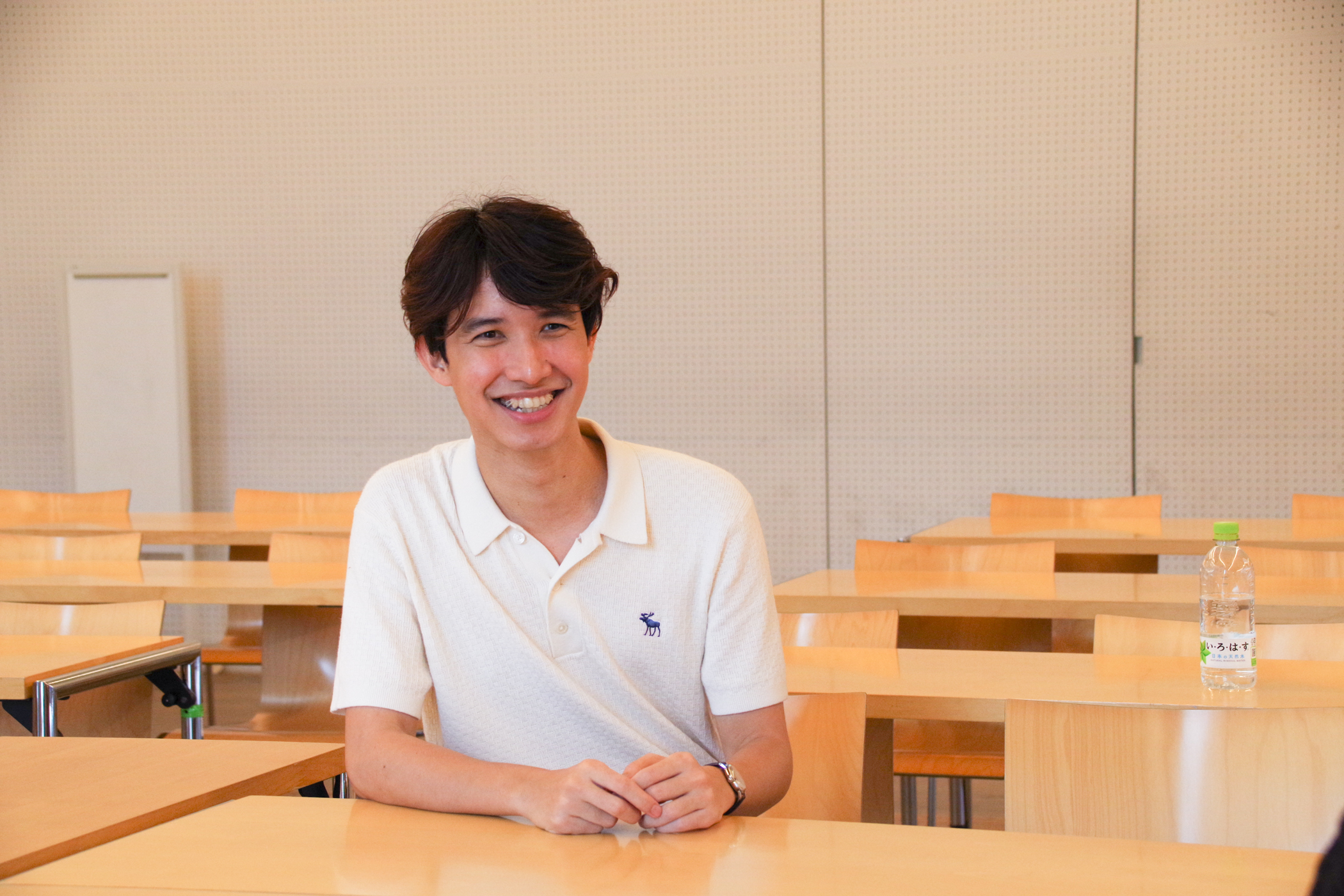
In China, lifetime employment is almost non-existent except for civil servants and state-run companies. Even those are more like long-term employment than lifetime employment.
Peru is like Japan, with many people wanting to work for one company for a long time. Those who want to do things freely change jobs in various ways, but I think those with high skills or performance are better suited to that approach.
In Indonesia, of course public employees work long-term, but I believe that many other people change their jobs. This is because they value life-work balance. Religion may have an influence, but rather than aiming for a high salary, there is the idea of using one's time for one's family. Also, many Indonesians work at the same job as their parents. If your father was a doctor, you become a doctor; if he was a public employee, you become a public employee; and so on.
Q. Have you ever thought about starting a business?
I have started my own business before.
I am thinking of starting my own business while learning at my current job. My current company's main market is Japan, but if the clients are foreigners, I think there will be more opportunities.
As for myself, I don't think about it now. But that is not to say that I have never thought about starting a business.
Difficulties and Rewards of Working in Japanese Society
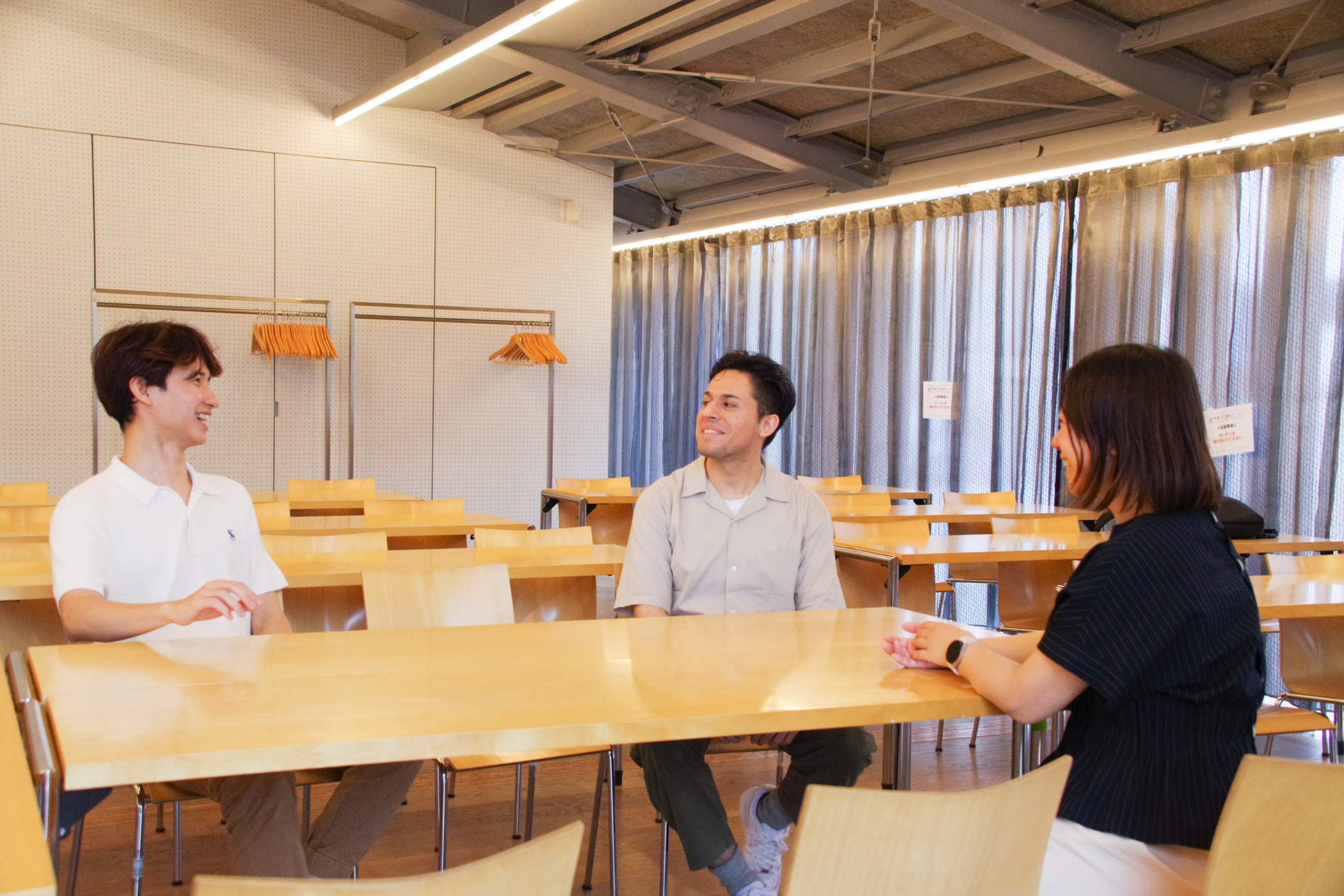
In order to work in Japanese society, I had to change my way of thinking. I try to respect Japanese culture when I speak with Japanese people and respect their culture when I speak with English-speaking people. Otherwise, I cannot create a good relationship. I enjoy adapting to the other person's culture. Reading the room, for example. (Diego laughs)
I am also the type of person who enjoys the culture of the country. However, I do find it difficult when I feel the barriers for foreigners in my work. At my previous workplace, even if an idea was accepted within the company, the client or supervisor would ultimately decide that it would be better to do things the Japanese way. As a foreigner, I was not given many opportunities, and I changed jobs because I felt it would not be good for my career.
On the other hand, I think there are things that we, as foreigners, can do. For example, the number of foreigners working in Japan is expected to increase in the future, and I think there are things that we can understand and teach them because we are in the same position.
Yes, that's true. Because I am also a foreigner, it is easier for me to anticipate and understand cultural differences when dealing with overseas business partners, so things go smoothly.
Foreign clients are often delegated to me. I am happy to be useful in such cases. In my case, however, I am sometimes mistaken for a Japanese person if they just look at my face. (Rizky laughs)
What did you think about the topic of "Work"? We heard various stories from three participants who work in Japanese society, such as how they felt they would be given opportunities if they worked hard, how they felt barriers in their work, and what they felt they could do because they are foreigners. In the next issue, they will talk about the "Workplace".
--- Continued in the Following Issues
